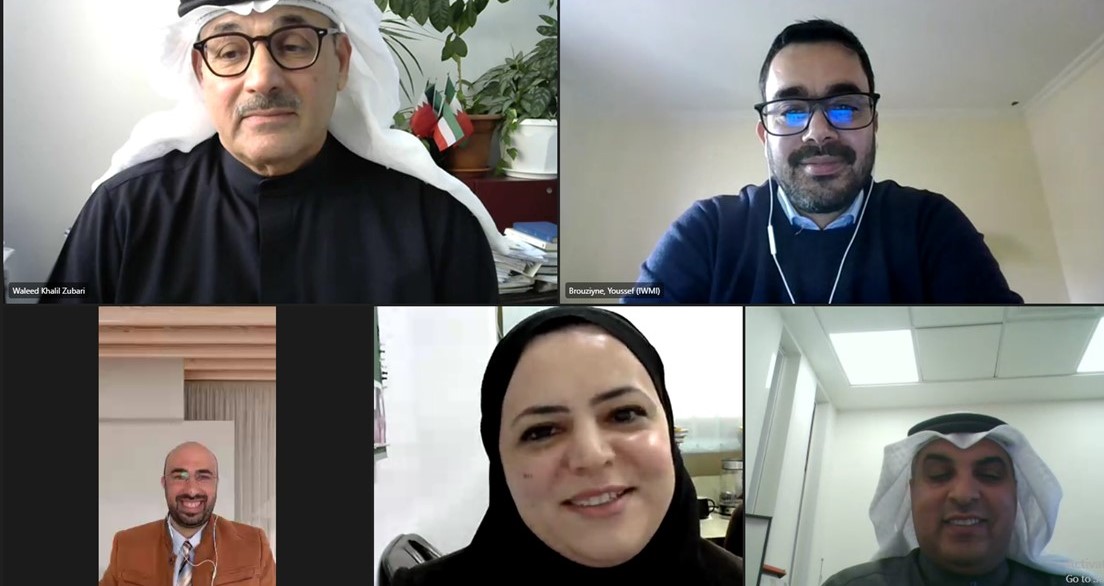
Stressing the Necessity of Enhancing Sustainable Water Management Practices in the Gulf A Panel Discusses AI Applications in the Water Sector
Arabian Gulf University
18 Feb, 2025
The participants in the panel "AI Applications in the Water Sector”, which began yesterday and was jointly organised by the Energy Department of the General Secretariat of the Gulf Cooperation Council (GCC), the Gulf Water Sciences and Technology Association (WSTA), and Arabian Gulf University (AGU), emphasised the necessity of enhancing sustainable water management practices through research and the application of AI in improving water management.
Participants in the panel, which was moderated by Professor of Water Resources Management at AGU, Prof Waleed Zubari, reviewed how to use this technology to address water challenges in the Gulf region, which suffers from a scarcity of water resources due to the arid climate and population expansion.
Zubari pointed out the importance of holding this panel to provide innovative solutions to water problems in the region, which faces unique water challenges that require effective management of water resources. Through the application of AI technologies, management can be advanced on three main levels: improvement, prediction and analysis, including demand management; detection of waste sites and leaks; improvement of water desalination processes. He added that these tools provide innovative solutions that will improve water sustainability in the region.
The panel, in which the Regional Representative of the International Water Management Institute (IWMI) in the Middle East and North Africa, Dr Youssef Brouziyne, and Consultant in Digital Intelligent Systems, Chair of the Institute of Electrical and Electronics Engineers Education Chapter, UK and Ireland, Dr Zeyad Yousif Al Shibaany spoke, discussed the latest AI application in water resources management, reviewing the challenges facing the adoption of these technologies and how to overcome them, in addition to future trends and opportunities provided by this technology to improve water management in the Gulf and Arab region.
The two speakers stressed that AI represents a strategic necessity to achieve water sustainability in the Gulf, as every drop of water becomes more important while facing the challenges of water scarcity. They answered questions from the panel watchers, who exceeded 120 academics, researchers and interested parties from different countries, and exchanged expertise with them on means to apply AI in the water sector in the Gulf.
For his part, the Director of Energy at the GCC General Secretariat Dr Mohammad Falah Al Rashidi, stressed the importance of AI in enhancing water resources management, especially in Gulf countries that suffer from major challenges in this field, such as water scarcity and the increasing effects of climate change.
Heightened demand for water and the scarcity of natural resources require the adoption of advanced technologies such as AI to confront these difficulties. Dr Al Rashidi pointed out that AI offers great potential in the water sector, such as predictive analytics to improve water consumption, and the use of smart sensors to detect and reduce waste. However, he stressed the need to address some challenges related to data availability, regulatory frameworks, and capacity building to ensure the effective integration of these technologies in the water sector.
For his part, the Chairman of the Board of Directors of WSTA, Eng. Abdulrahman Almahmoud, stressed that water resources management is one of the most prominent strategic challenges facing the Gulf, as these countries suffer from significant scarcity of natural water resources, in contrast to population growth and rapid economic development that increases the demand for water and the costs of providing it. He explained that with the rapid developments in the fields of emerging technologies, AI comes with its enormous capabilities to provide innovative solutions to manage water resources efficiently and effectively.
In this context, the panel participants called for raising awareness regarding the importance of AI in addressing water challenges, encouraging innovation and partnerships between the public and private sectors to develop smart and sustainable solutions for water resource management in the region.
